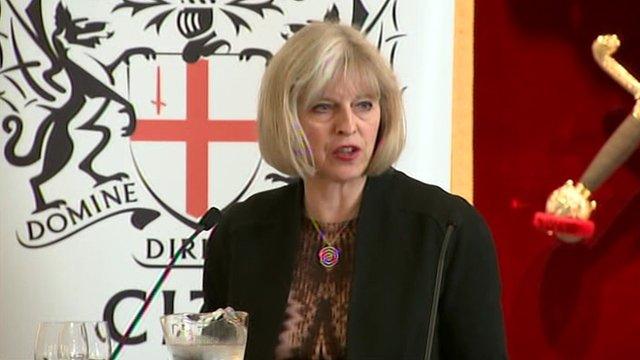Islamic State extremists threaten all of Europe, says Cameron
- Published
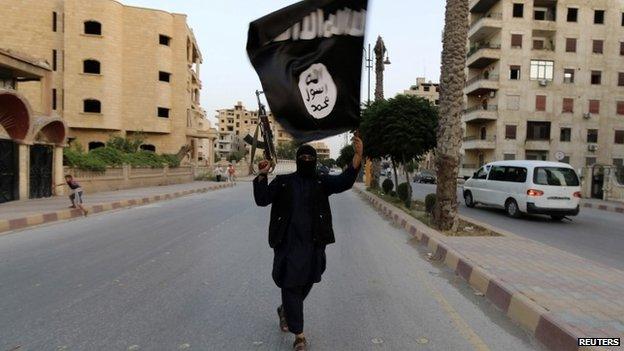
IS extremists have seized large areas of territory across northern Syria and Iraq
The terrorist threat posed by Islamist extremists is as much a concern for countries in mainland Europe as it is for the UK, David Cameron has said.
The prime minister and Nick Clegg are expected to discuss plans for new measures to tackle the threat.
Their talks come after the UK's terror threat level was raised to "severe" from "substantial" in response to the deepening conflict in Iraq and Syria.
Labour has called for more action to stop Britons being drawn to extremism.
Mr Cameron will make a Commons statement on Monday, proposing new powers to stop would-be terrorists travelling abroad.
He has urged European leaders in Brussels to take co-ordinated action to tackle the group calling itself Islamic State (IS), which has seized swathes of territory in Syria and Iraq.
Speaking before the meeting, he said: "Today in Brussels is an opportunity to talk with other EU leaders and to make sure we all co-ordinate to stop people travelling to Iraq and Syria to stop radicalisation, to confront extremism."
He had previously said the "threat is growing" from Britons travelling to fight with IS, adding that there were "gaps in our armoury" that needed to be strengthened.
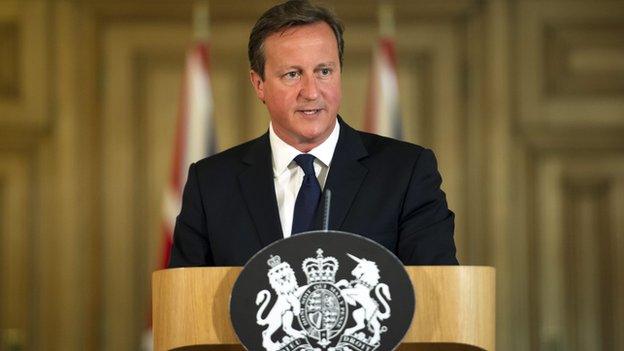
The prime minister is expected to consider strengthening terrorism prevention and investigation measures
The new alert level rates the risk of an attack on the UK as "highly likely", although Downing Street said there was no evidence to suggest one is "imminent".
The rating is the second highest of five possible UK threat levels, external and is the highest since 2011.
Labour leader Ed Miliband has suggested the introduction of a "mandatory programme" of deradicalisation for people "drawn into the fringes of extremism".
Writing in the Independent, external, he also urged the government to revisit the decision to scrap the control orders regime for terror suspects.
Liberty
Talks between Mr Cameron and Mr Clegg, the deputy prime minster and Liberal Democrat leader, come after the Conservatives said they wanted to make it easier to seize the passports of would-be terrorists travelling abroad.
The home secretary already has the power - under the Royal Prerogative - to withhold a passport if it is in the public interest to stop somebody travelling.

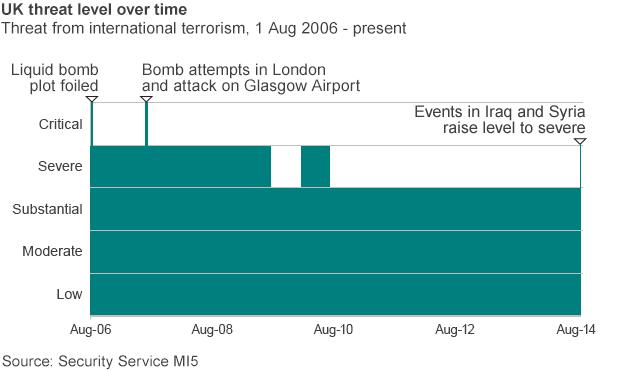

Mr Cameron is also likely to consider strengthening terrorism prevention and investigation measures - or Tpims - which were the coalition's replacement for control orders.
However, the Liberal Democrats have said they would only agree to policies that were made calmly, on the basis of evidence and that maintained the liberty of British citizens.
A Lib Dem source said Mr Clegg and the prime minister were in "constant communication" on the issue, adding that the party "will consider very carefully any new proposals that are put to us".
'Bombs and rockets'
BBC political correspondent Louise Stewart said powers to withhold passports had been used 23 times since April 2013, but she said the PM could seek to strengthen those powers.
She said the government could not - following a ruling by the European Court of Human Rights - make somebody "stateless" by refusing them re-entry to Britain, if they had no other passport.
"The sticking point with the Liberal Democrats is they have been against introducing more surveillance measures but say that any new measures would have to be brought in on an evidence basis and it would have to be purely for the safety and security of the British public," our correspondent said.
Former Liberal Democrat leader Lord Ashdown has argued that diplomacy is vital to limit the risk from jihadists.
"I think we have got to get away from this idea which says that in response to everything in the Middle East our answer is bombs and rockets," he said.
Lord Ashdown added that the government was unwise to concentrate on the "threat of jihadis coming home".
He warned that the bigger threat was a potential "regional war" in the Middle East, which would be religious and result in the changing of borders.
- Published29 August 2014
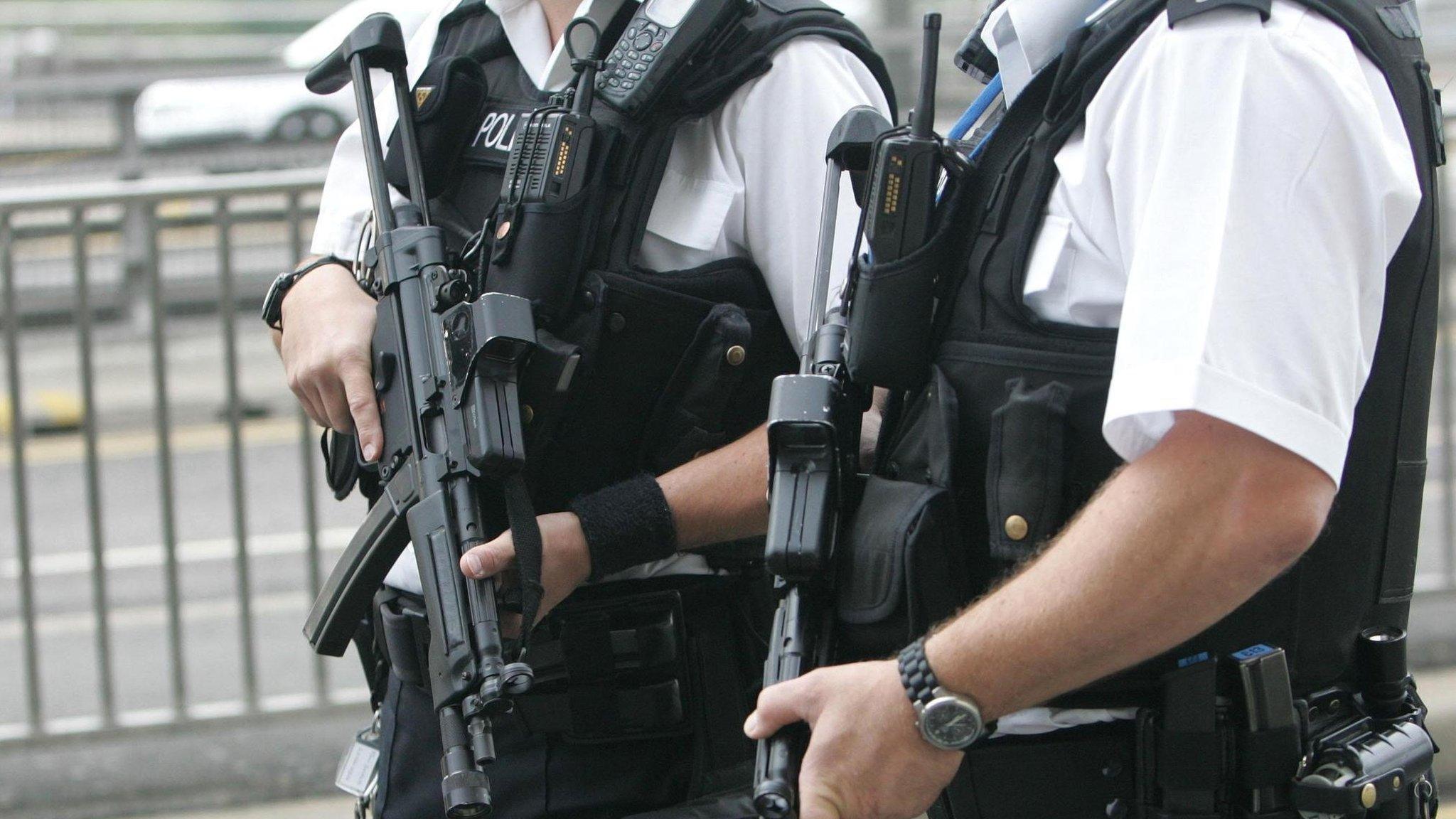
- Published17 August 2014

- Published24 June 2014
